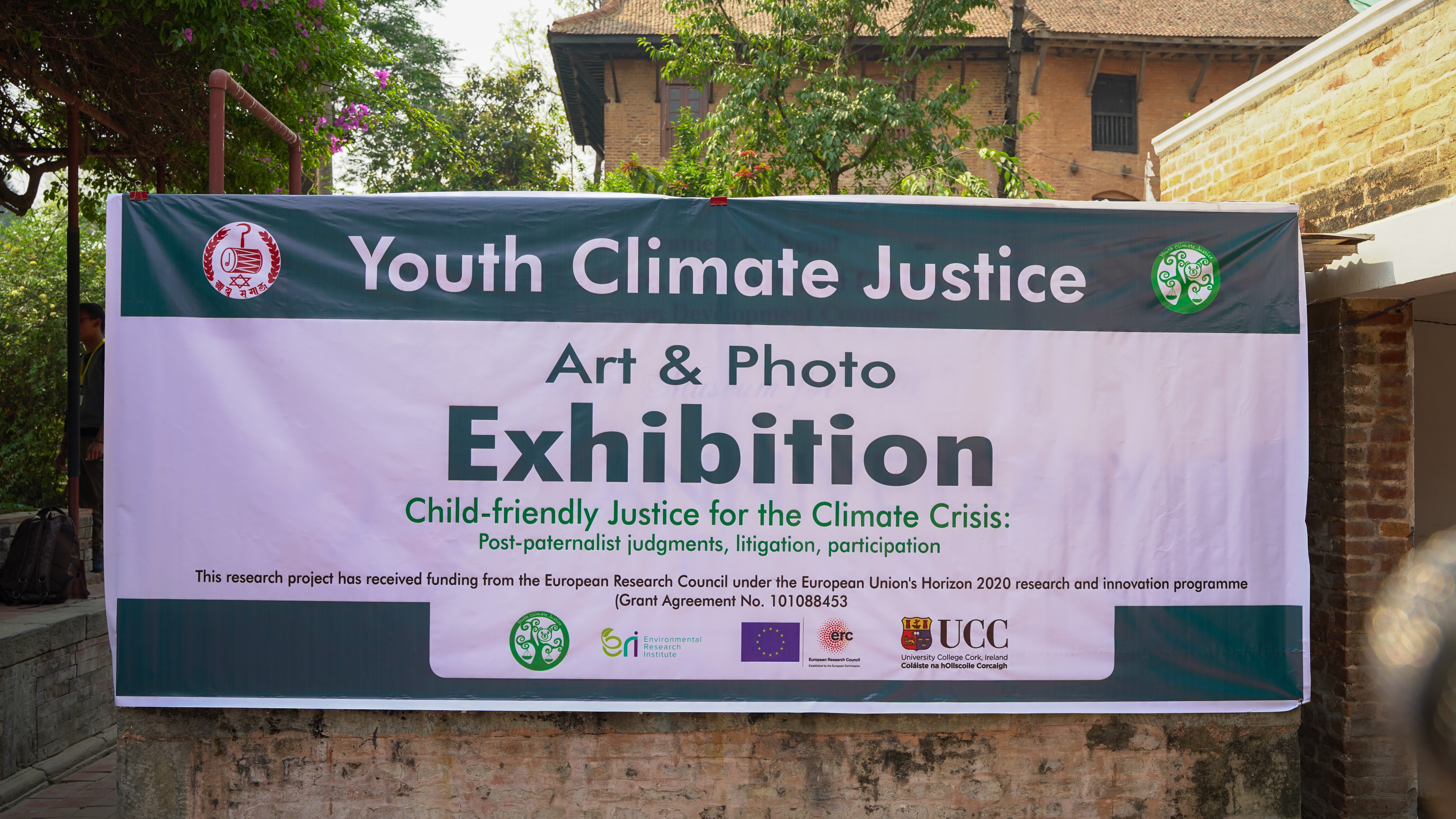Blog
Youth Climate Justice Nepal – Fieldwork Successfully Completed!

The Youth Climate Justice (YCJ) Nepal fieldwork has officially come to an end! Here, we reflect on this journey and the meaningful participation of 34 indigenous children and young people from Patan, who took part in creative workshops exploring climate change, children’s rights, and leadership.
From November 2024 to April 2025, Post Doctoral Researcher Dr Nabin Maharjan has led the completion of the first YCJ case study on children and young peoples’ experiences and views on climate justice in Nepal. This case study, which is at the heart of Work Package 3: Participation, has opened an inspiring chapter for the Youth Climate Justice project, not only by providing a new space for indigenous children and youth to co-produce knowledge on climate justice but also by helping the YCJ team in generating new insights on the nature of children’s rights in the context of the climate crisis.
Our work began with critical groundwork to ensure local support. In collaboration with the community-based organisation Jyapu Samaj, we presented the project to the Social Welfare Committee of Lalitpur Metropolitan City, where we received approval in the presence of Deputy Mayor Mrs. Manjila Shakya Bajracharya. This paved the way for meaningful engagement with the local community.
Following this, we submitted our project proposal to the Social Welfare Council (SWC) and were granted federal approval on December 17, 2024, officially launching the implementation of YCJ Nepal.
A dynamic local team was established with Jyapu Samaj, bringing on board passionate youth workers and volunteers to support logistics and community coordination. Their commitment helped ensure that every stage of the project ran smoothly and effectively.
One of the early highlights was the introductory meeting between PI Prof. Aoife Daly and the Executive Committee of Jyapu Samaj, which strengthened our collaborative approach and set the tone for inclusive engagement.
We successfully recruited 34 indigenous children and young people from Patan to participate in four participatory and creative workshops about climate change, children’s rights, and climate leadership. As part of the workshops, participants visited significant local heritage sites like the Bagmati riverside (UN Park) to explore pressing environmental issues firsthand. Their reflections and learning journeys took the form of art and photography, created at the 2,000-year-old Yumpi Monastery, blending cultural heritage with youth-led climate storytelling.
The culmination of the fieldwork was a final art exhibition, held on 5 April 2025 at the Patan Museum Gallery, a UNESCO World Heritage Site. It was a moving celebration of the youth participants' voices, ideas, and artistic expressions.
We were deeply honored to have Hon. Minister of Forests and Environment, Mr. Ain Bahadur Shahi, inaugurate the exhibition. His presence underscored the importance of youth perspectives in national climate discourse. We were also joined by Hon. Prem Bahadur Maharjan, Local Member of Parliament for Lalitpur-2, and Hon. Mayor Mr. Chiri Babu Maharjan of Lalitpur Metropolitan City, who took the time to engage with the young participants and encourage their continued activism.
The exhibition drew an audience of around 300 people, who came to listen, learn, and reflect on the climate challenges and aspirations shared by the children and young people of Patan. The energy and support in the room were truly inspiring.
This project would not have been possible without the tireless efforts of our local partners, community members, and most importantly, the young participants who led us with their honesty, creativity, and hope.
As we close this chapter of YCJ Nepal, we carry forward the lessons and stories that emerged and look ahead with renewed commitment to centering youth and indigenous voices in the fight for climate justice!

